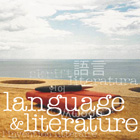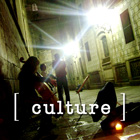
|
1 November 2006 José Rizal was the father of the Philippine cause for independence from Spain. His poetic works show a marked interest for the improvement of the human condition and serious politicla meditations. While confined to Fort Santiago, in Manila, he penned at the end of his life his last work in verse, "My Last Farewell", which is prized by critics and scholars for its completeness and intimate exploration of the edges of mortal human experience. Now, a new anthology, created in collaboration between New Jersey-based publisher Casavaria and Barcelona-based publisher Linkgua, a new anthology contains both of Rizal's dramatic works and a selection of his most prized poetry. The book is an exploration of a period of the author's work where his personal talent for verse and drama merged with his political activities, and his desire to establish a continuous but independent Filipino tradition. Rizal's dramatic work is limited to two plays, each consisting of one act occupying more or less 30 minutes of stagetime. Both were written when the author was 19 years old and a student at the University of St. Thomas. 'Junto al Pasig' expresses certain prophecies of Rizal regarding a possible domination of the Philippines by new imperial powers. It was written in the traditional octosyllabic romance style, common in the Spanish Golden Age literature. 'El consejo de los dioses', or 'Council of the Gods' reflects Rizal's feelings about Hispanicity. Written in April of 1880, it won first prize in the contest held by the Liceo Artistico de Manila, or Manila Art Institute. The text has its roots in the classical education Rizal received from the Jesuits in the old Ateneo Municipal; it mixes characters from Greek mythology with Cervantes, as a topic of controversy among the gods. It also expresses Rizal's love for Hispanicity, showing the cultural legacy as a solution for preventing the eventual takeover of Filipino culture by foreign forces. [s]
RELATED STORIES: El día 23 de abril se celebra en Barcelona como el 'Dia de Sant Jordi', en reconocimiento de su santo tradicional, San Jorge. Es también la fecha en que, según la historia, murieron Shakespeare y Cervantes en el año 1616. Por lo tanto, se ha convertido en el 'Día del Libro', festival que llega a ser el día en que se venden más libros. [Texto completo] POLITICS OF LANGUAGE IN DIVERSE SPAIN Spain's opposition PP has accused the regional government of Catalunya of "investigating, inspecting and sanctioning" businesses that put signs exclusively in Castilian (the language commonly known as "Spanish", though it originates in the central Spanish region of Castile, and other regions use other languages), according to La Vanguardia newspaper. [Full Story] MULTILINGUAL SOCIETIES SHOW NEW DYNAMISM Both North America and Europe are becoming increasingly mixed societies, drawing from large pools of legal and illegal immigrants, many of whom are migrating to countries whose predominant language they themselves do not speak. The US, for example, is the world's fifth largest Spanish-speaking country, with some 35 to 40 million native speakers. In New York City, more than half of all residents speak a language other than English in their homes. [Full Story] |
|||||||||
|
||||||||||


